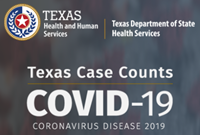A major problem for many hay producers this summer. Shelby County Agrilife Extension is hosting a forage seminar with emphasis on crabgrass control on November 10, 5:30-7:30 pm at the Extension Gym. 2 CEU credits will be offered for those with a private applicators license. Contact the Extension office for more information.
Crabgrass is a warm-season annual grass that is commonly found in pastures and hay meadows in parts of Texas. Relative to other warm-season annual grasses, crabgrass has a low- to medium-yield potential but is high in forage quality. As such, it is often a desirable component in pastures and is sometimes planted for forage in pastures. As is the case with many annual grass species, crabgrass is a prolific seed producer which enables new stands to establish in subsequent growing seasons for summer grazing.
Due to its high-volume seed production, crabgrass also has the potential to become a problematic and persistent weed in hay meadows. Its competitive growth among perennial grass hay meadows contributes to stand thinning from spring to late summer; thus, growers are concerned about its economic impact. Crabgrass has a slower drying rate than most hay species, which causes rotting and mold development after baling. Once it is dry, crabgrass often turns a dark brown or black color, which stands in stark contrast to the bright green color of other grass hay crops. This can substantially lower the value of the hay crop, so controlling the growth of crabgrass may be critical for long-term successful production.
So how to manage unwanted crabgrass?
If the hay meadow happens to be fenced as well as have a source of water, grazing can be an excellent way to utilize the high-quality crabgrass forage as well as remove it from the meadow. Grazing pressure can reduce seed production and reduce further spread of crabgrass.
Use of herbicides to control crabgrass is probably the most common method practiced. If you haven’t been satisfied with products that are labeled to control or reduce crabgrass then we have an excellent seminar discussing the new product on the market that will give season long control along with broadleaf weed control all as a pre-emerge herbicide.
Shelby County Agrilife Extension is hosting a forage seminar on November 10 5:30-7:30 pm at the Extension Gym. 2 CEU credits will be offered for those with a private applicators license. Contact the Extension office for more information.
Lane Dunn is the County Extension Agent for agriculture and natural resources for Shelby County. His email is jldunn@ag.tamu.edu
Educational programs of the Texas A&M AgriLife Extension Service are open to all people without regard to race, color, sex, disability, religion, age, national origin, genetic information or veteran status. The Texas A&M University System, U.S. Department of Agriculture, and the County Commissioners Courts of Texas Cooperating.
.jpg)



 Click For Louisiana
Click For Louisiana
